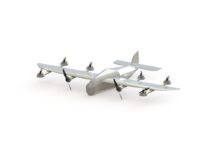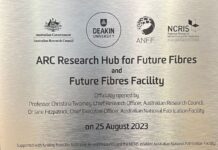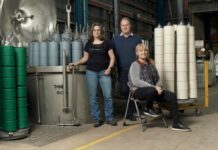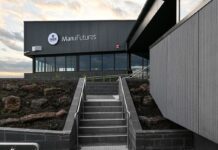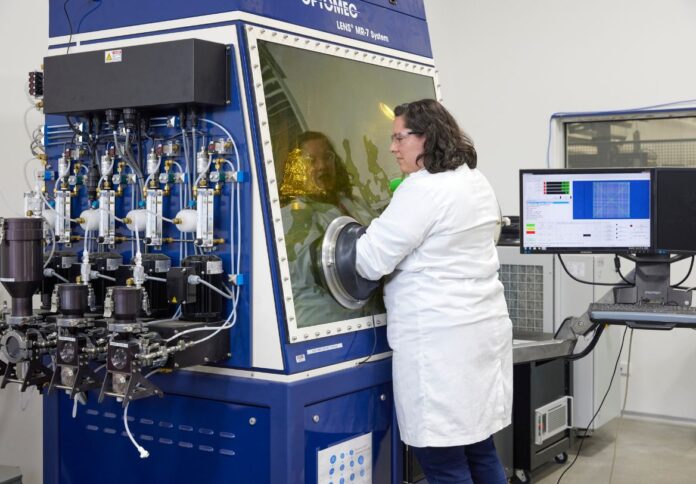
Media Release by IMCRC
The critical minerals industry could soon have access to longer-life seated ball valves thanks to a $585,000 research collaboration between the Innovative Manufacturing Cooperative Research Centre (IMCRC), Callidus Welding Solutions (CWS) and the Institute for Frontier Materials (IFM) at Deakin University.
The valves, which are manufactured from high-performance alloys and can cost upwards of $250,000 each, play a key role in the hydrometallurgy production of critical minerals like nickel, cobalt, and gold, and are exposed to significant wear and tear as a result of the high temperature, high pressure, corrosive and erosive environment contained within.
To extend component life and increase reliability, the valves are coated with a thermal spray ceramic. Despite being erosion-resistant, these standard coatings are porous, allowing the corrosive media to penetrate. Over time, the underlying valve surface will corrode, and the conventional ceramic coating will spall. The loss of coating results in loss of valve performance and can bring production to a halt. To create a longer-life product and increase efficiency, CWS and Deakin have developed a novel coating system that fuses the coating onto the dominant surface alloy of the valve, in this instance, titanium.
Joe Ellis, Automation Supervisor at CWS, who has been leading the project, said, “The outcomes of the collaboration have broadened our application base and product portfolio, allowing CWS and our parent company Callidus Process Solutions to provide a real-world commercial solution to premature valve failure.
“IMCRC’s high-impact, shorter-term activate program was the perfect vehicle for our collaboration, and we’re now looking to continue our research and development (R&D) with Deakin as a result.”
Associate Professor of Metallurgy at Deakin University’s IFM Dan Fabijanic said, “This collaboration has allowed Deakin’s metallurgy and materials researchers to effectively integrate with industry and deliver a product of significant benefit to CWS’ customers.
“By bringing together Deakin’s research expertise and CWS’ industry insights, IMCRC’s collaborative model has enabled us to share learnings and more quickly iterate to not only find a solution to this challenge but to explore new R&D avenues.”
Dr Matthew Young, IMCRC’s Manufacturing Innovation Manager, said, “CWS and Deakin’s fused coating has the potential to increase the valve’s lifespan and make production more efficient, both of which will help to make critical minerals processing more cost-effective.
“As this project demonstrates, industry-led R&D has a significant role to play as Australia looks to expand its nascent critical minerals industry and its manufacturing capability more broadly.”



